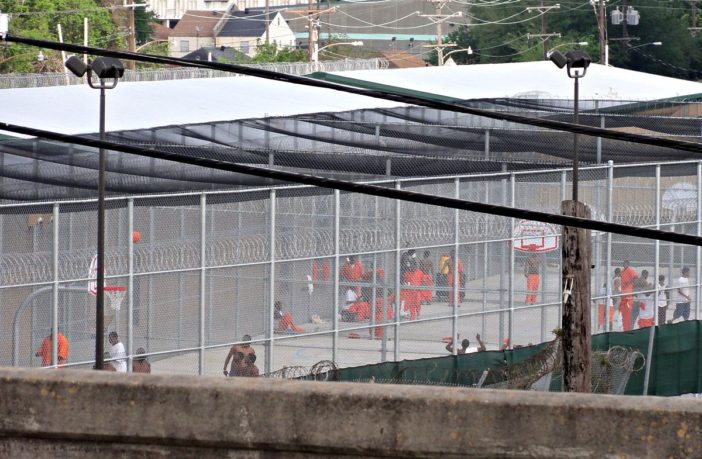Over five million people are under criminal legal supervision in America, and nearly two million — disproportionately Black — live in prisons and jails.
In the early 1970s, this count stood at about 360,000.
The nonprofit Sentencing Project blames incorrect sentencing laws and policy, not crime, for much of the increase in custodial monitoring.
The Sentencing Project and a coalition of advocates, professionals and allies have launched “50 Years and a Wake Up: Ending the Mass Incarceration Crisis in America,” a public education campaign.
Advocates say the U.S. prison population began its astonishing rise 50 years ago, in 1972.
The new campaign uses that year’s historical significance to raise awareness of mass incarceration’s catastrophic effects on American communities and promote more effective and humane solutions.
“Through the ‘50 Years and a Wake-Up’ campaign, politicians and the public will learn about the dire state of the U.S. criminal legal system, the devastating impact of incarceration on communities and families, and they will be urged to support more effective crime prevention strategies for our country,” said Amy Fettig, executive director of The Sentencing Project, in a news release.
“Fifty years of this failed experiment has created a criminal justice system defined by racism, harsh penalties and cruelty.”
Black and Latinx men are six and 2.5 times more likely to be imprisoned, respectively.
Further, 1 in 81 Black Americans are in state prison.
During the buildup of mass incarceration, the Sentencing Project noted that between 1972 and 2009, the prison population grew an average of 5.8% annually.
Since then, decarceration has averaged 2.3% each year, with a 14.1% decline in 2020 due to the COVID-19 pandemic, officials said.
Decarceration slowed to 1.9% in 2021.
The Sentencing Project reported that a return to 1972’s jail population would cut the prison population by 87% from its 2009 peak.
The number of youths in juvenile detention facilities has already dropped 77% from 109,000 in 2000 to 25,000 in 2020.
Connecticut, New Jersey and New York are nearing juvenile facility reductions.
Those states have cut incarceration by 50% since peaking.
Twenty-five states have lowered their jail populations by over 25% since peaking, exceeding the national average.
The Sentencing Project found 27% fewer federal prisoners than in 2011.
Crime has dropped in some states, often outperforming national trends, due to jail population decreases.
When New York more than halved its jail population between 1999 and 2020, its violent crime rate plummeted by 38% while the U.S. violent crime rate declined by 24%.
New York and other states have closed and repurposed prisons due to decriminalization.
Still, the U.S. remains the world’s most incarcerated nation.
Dr. Ashley Nellis, The Sentencing Project’s co-director of Research, commented in a news release, “The social, moral, and fiscal costs involved with the large-scale, decades-long investment in mass imprisonment cannot be justified by any evidence of its effectiveness.”
Nellis claimed that “misguided changes in sentencing legislation and policy—not crime—account for the majority of the increase in correctional supervision.”
“Mass incarceration causes many negative medical, psychological and economic repercussions for prisoners, their families and the community,” she said. “Imprisonment lowers work opportunities and wages over time.”
Food insecurity, housing instability and public assistance are also linked to prior imprisonment, according to the Sentencing Project.
Nellis argued that incarcerated parents’ children suffer greatly in academic and health outcomes.
She also claimed that increased incarceration destabilizes communities, destroying informal networks that prevent neighborhood violence.
Nellis observed, “Trust in law enforcement deteriorates as community members face heightened levels of victimization and the loss of community members, friends and family members to incarceration.”
As the nation mourns Tyre Nichols and other police violence victims, the Sentencing Project has brought its campaign front and center.
Nearly three years after George Floyd’s murder, advocates claim Congress has failed to confront the dread of racist police killings.
Despite Congress’s recent sentencing improvements, the federal prison population has grown in the last two years after nearly a decade of reduction, they argued.
Further, advocates have asserted that overcriminalization and mass imprisonment require continual scrutiny and commitment from all levels of government.
Nicole Austin-Hillery, President and CEO of the Congressional Black Caucus Foundation (CBCF) said, “It is imperative we realize how a prejudiced criminal justice system, and the resulting mass incarceration of Black people, is wreaking devastation on our communities.”
Through the CBCF’s research with the National Racial Equity Initiative, Austin-Hillery said that statistics prove mass incarceration policies “have profound generational implications on the stability and advancement of Black communities,” directly affecting poverty, unemployment, economic status, education and health.
“Our society needs fundamental reform to our criminal justice system starting with the policies and suggestions detailed in The Sentencing Project study,” Austin-Hillery said.



